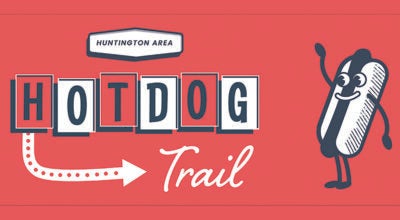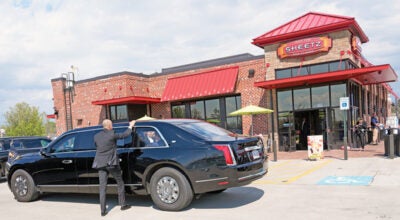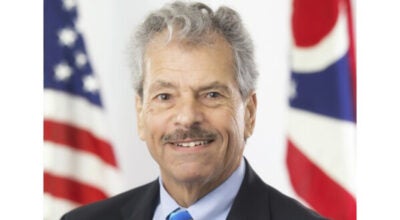Details of Empire Metal bankruptcy emerge
Published 10:54 pm Saturday, June 27, 2009
IRONTON — Empire Metal Recycling was sinking fast.
So fast, that the 24-year-old company was burning through large amounts of cash just to stay afloat. Like any other business, it had bills to pay — some in the tens of thousands of dollars — but it was being held hostage by an arsenal of invoices their subsidiaries had not paid.
Running out of cash with no additional avenues of income available, the Huntington, W.Va.-based company had no choice. Empire Metal Recycling needed some additional time to get their financial affairs corrected and bankruptcy was their only option.
So on June 12, the latest in a growing list of Tri-State companies filed for Chapter 11 reorganization in Charleston. Two weeks later, court documents and briefs filed in U.S. Bankruptcy Court show a company teeter-tottering on the brink of total liquidation.
Now its Ironton works, along with facilities in Ashland, Ky. and Ceredo, W.Va., sit in limbo.
An undisclosed number of employees have been laid off with only its Huntington steelyard still operational.
Phone calls to the company’s main headquarters are received with a recording apologizing for “the inconvenience” of being closed. Leaving a message for a return call is impossible as the company’s voice mailbox has been full for nearly a week. The company’s Ironton phone number rings to a busy signal.
As it now sits, Empire Metal Recycling is broke and officials aren’t commenting. However four years ago, the company made a big splash when it expanded into Ironton.
Welcome to Ironton
When president Mike Smith announced in July 2005 that Empire Metal Recycling was expanding to Ironton and would lease the former Advanced Cast Products building on South Third Street, he said the company planned on “being a good neighbor” and “absolutely” business friendly.
Smith said Empire would buy all types of scrap materials including old cars, appliances, copper, brass, aluminum and stainless steel. Then from its 25,000 square-foot facility, the company, according to Smith, would “process it, pack it and ship it around the world.”
He also promised more than 24 above-minimum wage jobs could be created from the expansion.
But from the outset the move to Ironton had its issues.
To start, the facility was a victim for thieves looking to buy and sell fenced metals. Further, some of the items brought to the facility were either stolen or stripped from unsuspecting owners.
It got to such a critical point that in 2007 a contract labor employee of Empire was arrested and sentenced for an inside job of stealing copper and trying to sell it back to the company he was contracted to.
When the economy took a dive in the summer and fall of 2008, Empire was a frequent visitor in the city of Ironton’s police logs and reports. Whether it was calls of theft from the facility or residents finding their window air conditioners or catalytic converters sitting in metal heaps, the company always seemed to stay in the news.
The filing
Fast forward to June 2009 and everything has changed for Empire Metal Recycling.
According to its Chapter 11 filing, the company claims it has between $100,000 and $500,000 in estimated liabilities while only having up to $50,000 in assets.
Chapter 11 bankruptcy permits a company to reorganize while keeping the debtor (Empire Metal Services) in control of its business operations, but under the direction of the court.
Debtors can emerge from bankruptcy through the process of a bankruptcy plan. In most cases, the debtor proposes a plan and the creditors can vote to accept or deny it.
If both parties can not come to mediation, the court can convert the case to a Chapter 7 liquidation or dismiss the case and return the company back to its status quo before bankruptcy where then, creditors would use other court means to satisfy collection of the debts owed to them.
Bankruptcy judge Ronald G. Pearson has been assigned the case.
Empire’s filing listed more than 80 current and outstanding creditors who hold unsecured claims against the company. Some of the larger ones listed include: $13,652 to the Ohio Department of Workers Compensation; $13,538 to Cintas Corp. for first aid and safety; $21,371 to the Internal Revenue Service for unpaid unemployment and payroll taxes; $30,933 to Nautilus Insurance for its liability insurance and $26,398 to Valley Natural Gas for purchases.
Empire also listed The Tribune as a creditor for unpaid advertising.
If its outstanding debts are not a big enough hurdle to overcome, bringing the company’s cash flow back to acceptable standards could be even harder.
In it first Initial Operating Report, filed June 25 in Charleston, the company told the court it would cost $80,000 a month to operate its current operations. It said it had $5,000 cash on hand with the potential to increase that number to $90,000 with the collection of outstanding account receivables and new work.
The filing did not go into detail or list the accounts receivable or what new work was anticipated.
Further, the company is sitting on a pair of checking accounts in the red. The filing listed the company’s general checking account with BB&T bank with a negative balance of minus $8,979.75 while its commercial checking account also with BB&T was at minus $210.48.
It did list in its filing, a debtor-in-possession account with U.S. Bank that has a current balance of $32,203. DIP financing is a special form of financing provided for a company in Chapter 11 bankruptcy process. It gives a troubled company a new start, albeit under strict conditions.
Empire Metal Recycling has retained Charleston-based attorney Joseph Caldwell to advise it through the bankruptcy proceedings. Caldwell did not return calls made by The Tribune asking for comment on its initial operating report or when he anticipated the company emerging from Chapter 11.
Compensation
As part of its Chapter 11 process, Pearson approved requests made by Empire to pay Smith $10,000 a month salary while reorganizing. The decision was based on a June 19 filing in which Smith alleges he averaged $1 million a month in gross revenue for the company.
Also with the courts approval, the company hired Certified Public Accountant Ovie Gibson of Charleston to handle accounting services for Empire while they reorganize.
In accepting the offer, Gibson waived more than $4,200 in previous services he conducted for Empire in exchange for an hourly rate of $170 per hour for tax returns and audits and $100 per hour for all other services.
As for the employees laid off in Ironton, it is unclear how Empire’s current closure affects the city.
When asked by The Tribune as to how much in income taxes Empire paid into the city’s general fund in 2008 or what the city could stand to lose financially by a permanent closure, Finance Director Kristen Martin would not comment citing city ordinance and directed all questions back to Empire Metal Recycling.





